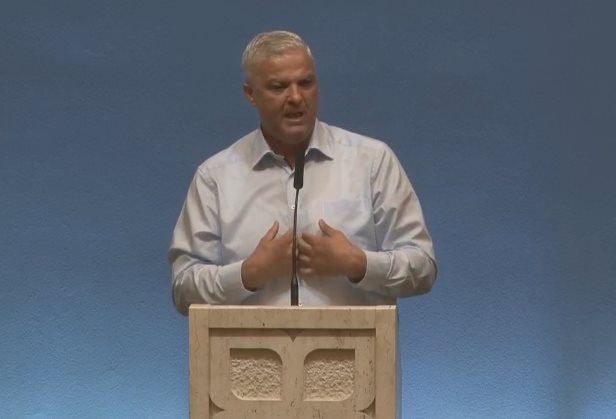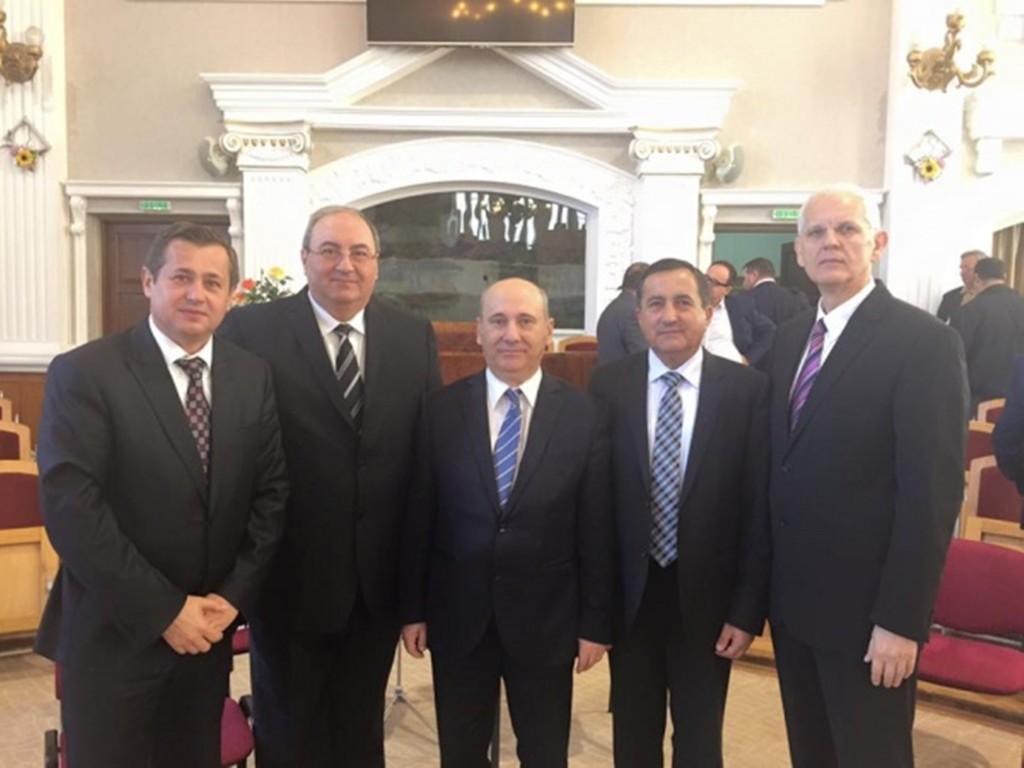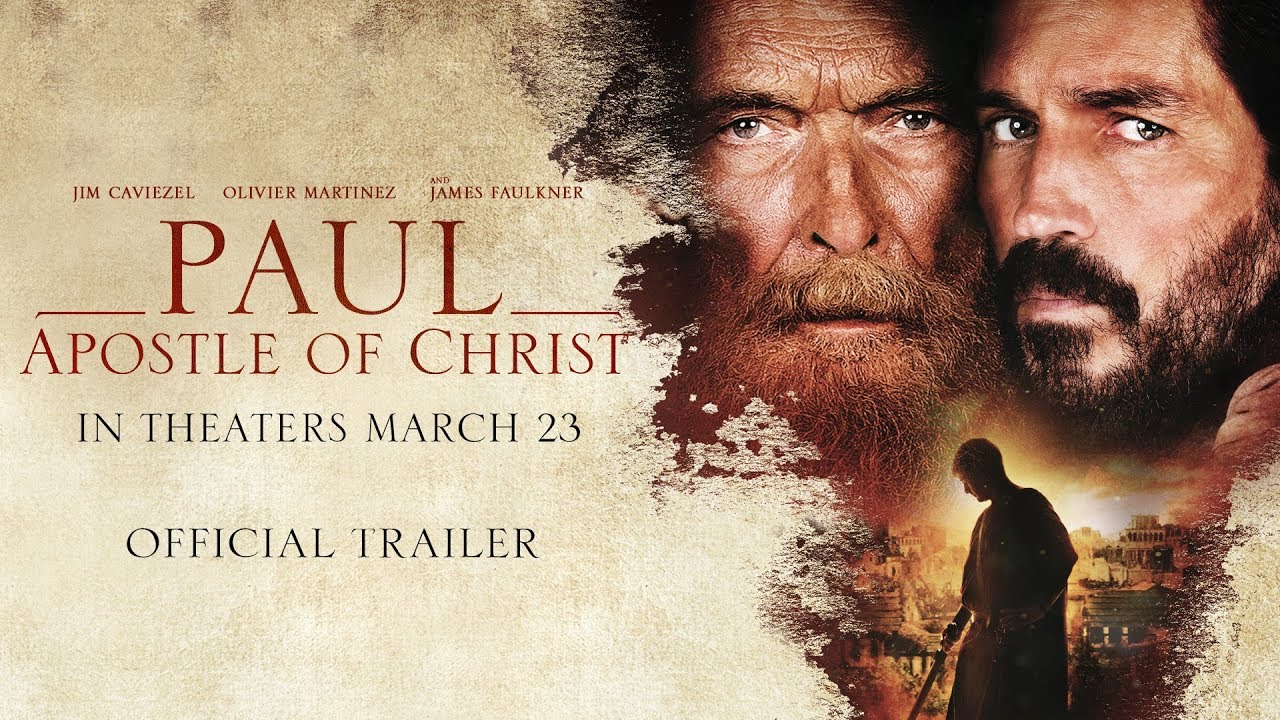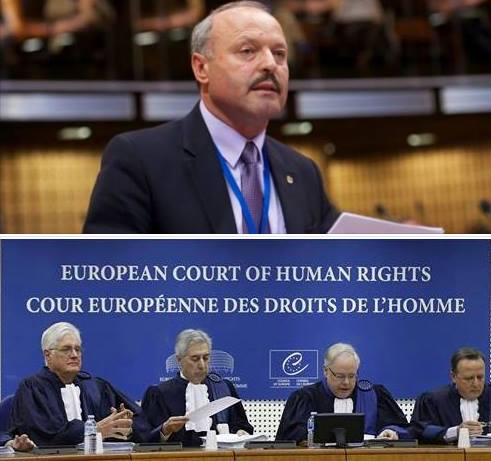
12 Historical Facts
(Most Critical Scholars Believe These 12 items)
1. Jesus died by crucifixion.
2. He was buried.
3. His death caused the disciples to despair and lose hope.
4. The tomb was empty (the most contested).
5. The disciples had experiences which they believed were literal appearances of the risen Jesus (the most important proof).
6. The disciples were transformed from doubters to bold proclaimers.
7. The resurrection was the central message.
8. They preached the message of Jesus’ resurrection in Jerusalem.
9. The Church was born and grew.
10. Orthodox Jews who believed in Christ made Sunday their primary day of worship.
11. James was converted to the faith when he saw the resurrected Jesus (James was a family skeptic).
12. Paul was converted to the faith (Paul was an outsider skeptic).
What Do Most Scholars Believe?
In The Case for the Real Jesus by Lee Strobel (p. 112), Mike Licona said, „[Gary] Habermas has compiled a list of more than 2,200 sources in French, German, and English in which experts have written on the resurrection from 1975 to the present. He has identified minimal facts that are strongly evidenced and which are regarded as historical by a large majority of scholars, including skeptics. We try to come up with the best historical explanation to account for these facts. This is called the Minimal Facts Approach.”
William Lane Craig (sadly, a non-OSASer) does confirm Habermas recorded 1400 scholars (both skeptics and non-skeptics alike) whom 75% agree the tomb was empty and nearly all agree the original disciples truly believed they had seen Jesus alive from the dead bodily, for a vision wouldn’t convince the disciples of resurrection.
Gary Habermas said (2009) on the John Ankerberg Show, „I just did a count recently of what scholars say. First of all you can count guys on one hand of the 2400 sources since 1975 on the resurrection [in] French, German, English…who think apparent death [is true]. When scholars respond they still cite David Strauss. I think we would all like to have that kind of influence in our writings. His critique has been around almost 200 years.” Habermas was referring to Strauss’s argument that Jesus wouldn’t look much like a risen Messiah to the disciples all battered and bruised.
Habermas and Licona co-authored the award winning book, The Case for the Resurrection of Jesus (2004). Historian Paul Maier said the book’s response to naturalistic explanations for the resurrection „are the most comprehensive treatment of the subject anywhere.” Philosopher J. P. Moreland said the book presented what „may be the most thorough defense of historicity of the resurrection.”
Gary said in a 2009 Ankerberg video, „If we start with the cross approximately 30 AD and call that ground zero, 1 Corinthians 15 checks in at about 55 AD whatever the writer, conservative or not conservative, we have 25 years. In ancient historiography this is incredible in a time when the best known biography of Alexander the Great is that of Plutarchalmost 400 years after Plutarch. When we learn about the early Caesars from Tacitus to Suetonius a ‘good gap’ is 100 years; 25 is incredible [for Jesus]. Paul says, ‘I am passing onto you as first importance that which I also received’ (1 Cor. 15.3).” Paul said, „I make known to you brethren the gospel which I preached to you” (1 Cor. 15.1). Gary says, „This earlier preaching may have taken place 51 AD about 21 years after the cross.” But point of fact, Jesus died not in 30 AD, but 33 AD on April Fool’s Day, Friday, April 1 (Gregorian) which I am sure of just +18 years after the cross.
Gary said, „Almost all contemporary scholarship believes Paul received this material (Gal. 1.18) when he went to Jerusalem about 5 years after the cross. Some put it as early as 3 and as late as 8, but he was converted about 2 years after the cross before he went away for 3 years. Paul spent 15 days with Peter. It is safe to say they talked about more than just the weather. Paul said he preached nothing but Christ crucified.” Gary said about James D.G. Dunn, „In his recent book Remembering Jesus that this passage (1 Cor. 15.3ff) wasn’t just taught. It was already stratified. It was already put in this creedal form within months of the crucifixion.”
Gary said (see video), „I did a count recently of people who have written from about 1990 to-date [2009]. 75% of scholars today say that resurrection or ‘something like it occurred.’ Of that 75%, three to one say it is a bodily appearance. Ted Peters had a book that was published by Eerdmans a few years ago, and 20 out of 20 scholars in his book that he edited said ‘bodily resurrection.’ Higher critical scholars who are in the minority will still usually concede the appearance involved sight and was embodied.”
In the summer of 2012, Gary wrote in the Southeastern Theological Review, „by beginning with a ‘lowest common denominator’ version of the facts. If I am correct in holding that this basis is still enough to settle the most pressing historical issues, then it is indeed a crucial contribution to the discussions. We will return below to some ramifications here. Regarding my references to the ‘vast majority’ or ‘virtually all’ scholars who agree, is it possible to identify these phrases in more precise terms? In some contexts, I have identified these expressions more specifically. At least when referencing the most important historical occurrences, I frequently think in terms of a ninety-something percentile head-count. No doubt, this is one of the reasons why the concept has gained some attention.
„My bibliography is presently at about 3400 sources and counting, published originally in French, German, or English. Initially I read and catalogued the majority of these publications, charting the representative authors, positions, topics, and so on, concentrating on both well-known and obscure writers alike, across the entire skeptical to liberal to conservative spectrum. As the number of sources grew, I moved more broadly into this research, trying to keep up with the current state of resurrection research. He said this again at William Lane Craig’s „On Guard” conference, „1 Corinthians is one of six to eight books all accredited critical scholars accept. You can count the exception on two hands, probably one hand. I have 3400 sources in a bibliography from 1975 to the present (2012). When I say you can count the guys on one hand who disagree with this it is not very many. They believe Paul is the best source, and 1 Corinthians is one of the most dependable sources. They allow 1 Corinthians and Galatians. Both are on the accepted list. Bart Ehrman says they are the authentic Pauline epistle. So does most everybody else. Whatever you write, these two books are allowed [indicating Paul’s genuine belief]. Paul is writing a mere [no more than] 25 years later. That is incredible. We have no other founder of a major world religion who has miracles reported of him within a generation.”
„I endeavored to be more than fair to all the positions. In fact, if anything, I erred in the direction of cataloguing the most radical positions, since this was the only classification where I included even those authors who did not have specialized scholarly credentials or peer-reviewed publications. It is this group, too, that often tends to doubt or deny that Jesus ever existed. Yet, given that I counted many sources in this category, this means that my study is skewed in the skeptical direction far more than if I had stayed strictly with my requirement of citing only those with scholarly credentials. Still, I included these positions quite liberally, even when the wide majority of mainline scholars, ‘liberals’ included, rarely even footnoted this material. Of course, this practice would also skew the numbers who proposed naturalistic theories of the resurrection, to which I particularly gravitated.
„The result of all these years of study is a private manuscript of more than 600 pages that simply does little more than line up the scholarly positions and details on these 140 key questions….
„[Mike] Licona begins by listing my three chief Minimal Facts regarding Jesus’ fate: (1) Jesus died due to the process of crucifixion. (2) Very soon afterwards, Jesus’ disciples had experiences that they believed were appearances of the resurrected Jesus. (3) Just a few years later, Saul of Tarsus also experienced what he thought was a post-resurrection appearance of the risen Jesus.”
Antony Flew Became a Theist

Shortly after the 2000 debate on the John Ankerberg show with Gary R. Habermas-leading scholar and foremost expert in world on the resurrection of Jesus (videos)-, the leading and most published atheist scholar of the 20th century Antony Flew renounced his atheism. This page recounts that debate. Antony Flew never did give his life to Christ but became a deist (a theist who rejects a personal God). He passed away April 8, 2010. This only goes to the point not whether theism is true or not but which theism, and very rarely does someone give their life to Christ at such an advanced age.
Flew said the reason he became a theist was because of the complexity of the cell. Whereas, I accepted Jesus was, is and always will be God by realizing all things sum up in Christthrough observing the unsatisfied searching of another person. It would take the equivalent of a hundred thousand encyclopedias to explain all the workings of the cell; or all the books in the entire Library of Congress, or all the knowledge we currently have about the universe.
However one may want to define life, it is hard to fathom how non-life can spontaneously turn into the simplest replicating life, let alone how unconscious processes with no mind, will, emotion, conscience, communion and intuition can produce these qualities and attributes for sentient life to exist. Can two rocks banging together for a very long time generate beings with self-consciousness and able to say, „I think, therefore I am.” If it sounds absurd it probably is. The more you think about it, the more ridiculous it seems! The 4 Step Proof for God and Minimal Facts Approach are my foundation for evidence.
Antony Flew’s more important role as a theist, from my perspective, was that he continued to agree the disciples truly believed they saw Jesus alive from the dead. Even when he was an atheist he believed this. Yet the problem remained for his faith: where was this illusive naturalistic explanation that could account for their eyewitness testimony in various group settings? What I think even I am underestimating is how solidly God intends this proof to be for us to hang our hat on as we who are Christians rise off into the sunset in glorious victory!

Eyewitness Accounts (5)
The foremost contemporary philosophical, atheist scholar of the 20th century, Antony Flew agrees with these 12 facts. These facts are established in eyewitness accounts of the resurrection of Jesus, presented in the books of the NT and disclosed by some of the original twelve disciples (Matthew, Peter and John). Paul was also an eyewitness though not an original disciple. James, the brother of Jesus, also saw Jesus resurrected who wrote the book of James. Jude, also a brother of Jesus, was an eyewitness who wrote the book of Jude. Very close to the eyewitnesses who traveled with Paul were Luke and Mark. There is one verse in Mark that suggests Mark saw Jesus. Mark had close association with Peter and Barnabas. Mark and Luke wrote the other two gospel accounts. At any rate, no scholars doubts Paul’s genuine eyewitness account of the resurrected Jesus so we can begin with Pauline data.
Dates (5)
55 A.D., Paul wrote 1 Cor. 15, “For I delivered unto you first of all that which I also received, how that Christ died for our sins according to the scriptures” (v.3). This is the standard documentation of the historicity of tradition being kept for an ancient text! “If Christ be not risen, then [is] our preaching vain, and your faith also vain” (v.14)? Paul is declaring sincerely the reality of his beliefs.
51 A.D., Paul preached at Corinth (his 2nd and later a 3rd missionary journey).
35 A.D., Paul met Peter and James in Jerusalem, just a few short years after the death of Jesus: “Then after three years I went up to Jerusalem to see Peter, and abode with him fifteen days” (Gal. 1.18). Recall Stephen was stoned to death by the Sanhedrin council of Jews for explaining the faith (Acts 7.59). Barnabas brought Paul to see Peter and James. What did Paul receive from Peter and James? “And that he was seen of Cephas, then of the twelve: After that, he was seen of above five hundred brethren at once; of whom the greater part remain unto this present, but some are fallen asleep” (1 Cor. 15.5,6). Jesus was seen by at least 11 to 12 different groups in different settings. This is all a fairly tight network!
32 A.D., Paul was converted one and half years after the cross and Jesus appeared to him on the road to Damascus.
30 A.D. Jesus died on the cross. – Gary Habermas used this date for ease of reference; but, I have talked with him, and he agrees that it is quite possible Jesus died on April 1st, 33 AD, Friday (Gregorian) – April 3rd (Julian). The evidence for this date would be based on these calculations.
.
Given these dates, this was very early move!
Explanation for the Most Important Proof (5)
Antony Flew lost the debate 15 years prior to Habermas. He has had 15 years to find his better arguments. Flew’s best guess for the conversion of Paul seeing Jesus in Person is that it was either “conversion psychosis disorder” (Jack Kent coined this phrase) and the disciples experienced grief hallucination like when a 3rd person may be seen in the house who had passed away.
Habermas explains for Paul to have a Conversion Disorder (and Paul does not disclose a disorder in his words or conduct) we have multiple problems with the facts:
1. There is nothing in the diagnostic literature about hallucinations. It’s short lived and goes away. The DSM-3 and DSM-4 are the standard diagnostic tools for psychiatry.
2. You would also have to have an auditory hallucination (of hearing!).
3. You would have to have a visual hallucination (of sight!).
4. A great psychosis – often called Messiah Complex. Paul, instead, says what he receives is from God, not from himself.
Characteristics of Conversion Disorder – Does this sound like Paul to you? (5)
(Kaplan)
1. Up to 5 to 1 it happens to women.
2. It happens mostly to adolescents.
3. It happens mostly to people of low economic status.
4. It happens to people with low IQ.
5. It happens to military persons in battle.
These are the most common circumstances. Not a single one of them applies to Paul. This adds up to 9 items. Moreover, there is not a speck of evidence Paul ever wanted to convert from Judaism to Christianity.
Grief Hallucination (5)
There is no such thing as Grief Hallucination in the DSM-4, the most standard diagnostic tool for psychiatry…nothing. However, hallucinations do occur in someone who is alone. But in the Bible the various settings were of different group sizes seeing the resurrection of Jesus in different places; men and women; indoors and outdoors; walking, sitting, standing; and an empty tomb. Hallucinations do not come out of despair necessarily, but when you believe something so strongly, you make the image. Studies have shown that such hallucinations are talked out of eventually.
Antony Flew had nothing to say other than he felt there was an “enormous shortage of evidence”. In return, Gary cites 129 facts in 45 sources from various persuasions that agree to the 4 key historical facts (see below). Though there is a great many things we don’t know, what we do know militates these two problems cited by Kent and Flew.
Flew depends on self-declaring his stance for one of these two conditions: conversion disorder or grief hallucination. But given the evidence it is not possible. The burden of the proof lies on him. The visuals seen by the disciples Flew is convinced require no external referent. There is no question the disciples believed there was an external referent in Christ Jesus the 2nd Person of the Godhead. If the disciples are not good candidates for hallucinations and Paul is not a victim of conversion disorder, then there really is no other possibility than God’s divine providence at work in the physical resurrection of Jesus Christ.
The 4 Facts
Though some Scholars focus on up to 20 facts in this half a week of the passion of the Christ, there is a benefit to just examining 4 of the 12 facts, from Friday to Sunday: (1) you can refute the major naturalistic theories with them, (2) you have the best evidences for the resurrection here, and (3) this is being done with a very small kernel of data, not requiring a large list of noise.
FACT 1 – Jesus died by crucifixion (1).
FACT 2 – The disciples had experiences which they believed were the appearances of the risen Lord (5).
FACT 3 – The disciples were transformed (6).
FACT 4 – Paul came to Christ (12).
Physically Touched (Fact 2)
Antony Flew tries to argue for his naturalistic theory by saying that Thomas never actually put his hand in the side of Jesus, “Then saith he to Thomas, Reach hither thy finger, and behold my hands; and reach hither thy hand, and thrust [it] into my side: and be not faithless, but believing” (John 20.27). However, Thomas did reply, “And Thomas answered and said unto him, My Lord and my God” (v.28) as though he may have done so.
Ignatius in 107 A.D., 10 years after the Gospel of John, says that Thomas did touch Jesus. Be that as it may, there is more to say: “They (the women) came to him, and took hold of his feet” (Matt. 28.9). And Jesus said to Mary Magdalene after she realized that he was not the gardener, “Stop clinging to me” (John 20.17).
“That which was from the beginning, which we have heard, which we have seen with our eyes, which we have looked upon, and our hands have handled, of the Word of life; (For the life was manifested, and we have seen [it], and bear witness, and shew unto you that eternal life, which was with the Father, and was manifested unto us;) That which we have seen and heard declare we unto you, that ye also may have fellowship with us: and truly our fellowship [is] with the Father, and with his Son Jesus Christ” (1 John 1.1-3) – After the gospel of John and onto the epistles, John says in 1 John, he has seen Jesus with his own eyes, heard with his own ears and touched with his own hands. Another instance is when Jesus is before the disciples in Luke, “See my hands and my feet, that it is I myself: handle me, and see; for a spirit hath not flesh and bones, as ye behold me having” (Luke 24.39). This is a straightforward account as you can get in His resurrection. It is interesting that Luke says “handle me, and see.” To “see” or to “behold” occurs after doing as Jesus said, to “handle” or “thrust into my side”. In John, he seems not to say that Thomas did touch him, for it is implied. How strange it would be that Jesus would say these words, then not to be touched.
Scholarly Agreement (Fact 2)
Gary Habermas has documented over 100 cases of scholarly work done from 1975 to 2000. His finding is that most scholars believe: (1) something really happened, (2) these were real experiences of the disciples, (3) they believe they saw the risen Jesus, and most importantly, (4) scholars believe the disciples really saw something. At the very least, critic after critic accept Paul’s eyewitness accounts.
Spiritual Body is not Spirit (Fact 2)
“It is sown a natural body; it is raised a spiritual body. There is a natural body, and there is a spiritual body” (1 Cor. 15.44). Since all scholars consider what Paul says to be crucial, first and foremost, his thought should be addressed. The Greek for spirit obviously is pneuma. But the word Paul uses here is pneumatikos soma for “spiritual body.” Paul is clearly saying the is some change here. He is not saying Jesus is a spirit, but there is a physical body.
Resurrection of the Dead (Fact 2)
Paul writes to the Philippians about himself as being “an Hebrew of the Hebrews; as touching the law, a Pharisee” (Phil. 3.5). The Pharisees believed in a bodily resurrection which is widely understood. In Acts 23, Paul was taken by the Romans to prevent him from being killed. And Paul responds with saying: Why are you taking me, I believe in the resurrection of the dead? The Pharisees, agreeing with the resurrection of the dead, don’t have a problem with this statement. But the Sadducees don’t like it, because they don’t believe in the resurrection of the dead.
“That if possible I may attain the resurrection (ek exanastasis – the out-resurrection) from the dead” (Phil. 3.11). All Greek scholars translate this passage as the out-resurrection, for that which goes in must come out. Paul here is not concerned here with whether he is saved or not to be resurrected with the saints. He is thinking of the „out-resurrection” – the „first resurrection” (Rev. 20.4-6), connoting the „best” one, to be included in the marriage feast (see Matt. 25.1-13)-the reward given to overcomer believers to reign with Christ for 1000 years.
“For our conversation is in heaven; from whence also we look for the Saviour, the Lord Jesus Christ: Who shall change our vile body (soma), that it may be fashioned like unto his glorious body (soma)” (Phil. 3.20-21). First there is the body, then it is the body plus something else to fashion a glorious body.
Paul: (1) he is a Pharisee who believes in the physical resurrection, (2) believes in a resurrection from out among the dead (and the „first resurrection” reward), and (3) believes Jesus will change his body (soma) to be like His body (soma).
Antony Flew’s response is that a “spiritual body” is not a body at all since it is immaterial as implied by the word “spiritual.” John Ankerberg responds by asking, If the Bible is a spiritual book, does that mean it is not a physical book? However, this is an ontological question, not a behavioral question.
Phil. 3 is a commentary on 1 Cor. 15. Paul is not leaving any doubt this is a physical body glorified. Any talk about Paul thinking this referring to spirits is not to do Paul’s words justice. If Paul is clear in Phil. 3 this is not some wispy spirit, then we can’t have the problem of saying that this is non-physical because he is telling us what he means by it.
Despair Not Without Hope (Fact 2)
If you go through trial or tribulation, and mourn with hope of the resurrection it makes all the difference in the world. Without this hope it makes the trial unbearable. But if you know where you are going, peace abounds because you know you will be with those that are loved by God. Habermas correctly believes that believers who have gone to rest have not received a spiritual body yet. However, he makes the common mistake of thinking that at the moment of death believers are present with the Lord. To wait for resurrection while still in the good side of Hades (Abraham’s bosom) is timeless unawares until we are raised together which does not violate this verse: “We are confident, [I say], and willing rather to be absent from the body, and to be present with the Lord” (2 Cor. 5.8). Between Hades and resurrection is timelessness: Abraham’s bosom or Paradise below.
There is no need to be present with the Lord without a spiritual body; moreover, you cannot come to the High Priest naked or with improper attire, that is, to say without a spiritual body which we will receive during the last „set of seven” at the consummation of this age. Not even David a man after God’s own heart is in Heaven yet (Acts 2.34). God desires to receive us to the throne (Rev. 7.9) at the first rapture if we are ready (Matt. 24.40-42, Luke 21.36, Rev. 3.10) before the trumpets (8.7ff) of the Tribulation commence, but if we are not ready we will be raptured together at the last trumpet in the twinkling of an eye (1 Cor. 15.50-52). And at the last trumpet, it gives us comfort those who are „alive” and „left” (1 Thess. 4.15-17) shall not precede them who are asleep to meet the Lord in the air. Be comforted in knowing we will ascend together and not separated by hundreds and thousands of years: „Wherefore comfort one another with these words” (1 Thess. 4.18).
A disembodied state is not present with the Lord. It is the condition of the demons who seek to inhabit and possess bodies. They prefer humans than the swine. Not until resurrection of the body of Christ and saints of old are we present with the Lord. Since no time is seen to have occurred when we are resurrected, then Hades is without time. Thus, any spirit communications with loved ones is purely emotional and imaginary as they are currently resting. Any communications with people you know have passed away is purely imaginary and can sometimes be demonic pretenders.
The Contradiction (Fact 2)
Antony Flew’s belief is that the reasons for the resurrection are valid is because the Jews were looking for the Messiah to come, and it would be equally valid for Christians. The guiding principle appears to be the previously held beliefs of the person which determine the truth of the resurrection. However, there remains the contradiction. If Jesus is saying that what He says is for all people on the planet, then He would be wrong, because Antony Flew says it doesn’t apply to himself. Jesus and the Apostles are right or Antony is right. They cannot both be right. Neither can they both be wrong since none can compare to Jesus. Jesus is God or He is not. Either there are no consequences or Antony Flew is going to Hell to be eternally separated the Creator.
Christians were first non-Christians. If what was good for non-believers to become Christians, which Flew agrees is good for them, then it would be good for him too, since he is also a non-believer. Therefore, it is not good for Flew to remain unsaved, but to his benefit to become a Christian by believing in Christ.
Is there Extra-Biblical Evidence Jesus Died on the Cross? (Fact 1)
There is data coming in from a variety of angles: 1) medical data, 2) critical data, and 3) extra-Biblical data.
1) Medical Data (Fact 1)
The Journal of American Medical Association, and dozens of other medical associations and articles, stated that death on the cross by crucifixion is death by asphyxiation. Studies by volunteers show a cutoff by about 12 minutes. If you are hanging low for any amount of time, you are not faking it. You’re dead.
The spear on the side of Jesus is confirmed in John as well as two sources outside the Bible. One of them is Roman and the is Christian that they did these things. David Strauss says if Jesus walked off the cross then there would be no Christianity because He would not be raised.
2) Critical and 3) Extra Biblical Data (Fact 1)
Of the 17 extra-Biblical non-Christian sources, 12 mention the cross and details of Jesus’ death within 100 or 150 years from the life of Jesus in all kinds of details.
“Christus (Christ)…suffered the extreme penalty during the reign of Tiberius at the hands of one of our procurators, Pontius Pilate” (Tacitus, Roman Historian, 55-120 A.D.). Tiberius was the governor.
“Christians…worship a man to this day…who…was crucified on that account…[They] worshipped the crucified sage…” (Lucian, famous Greek Satirist). He called him a crucified sophist.
“Nor did the wise king die for good; he lived on in the teachings which he had given” (Mara Bar-Serapion, Syrian Writer). He tells his own son to emulate Jesus who gave his life.
“Pilate condemned him to be crucified and to die…His disciples…reported that he had appeared to them three days after his crucifixion and that he was alive” (Flavius Josephus, 38-97 A.D.). Though it is disputed, the portion about the cross is believed. He also mentions Tiberius Caesar.
“Jesus…was nailed to a tree” (The Gospel of Truth, a Gnostic Source).
“On the whole world presented there presented a most fearful darkness…” at the time of the crucifixion of Jesus (Thallus, Samaritan).
“And with regard to the eclipse in the time of Tiberius Caesar..” at the time of Jesus’ death (Phlegon, 80 A.D.). There was a lunar eclipse April 3, 33 AD (Julian).
Paul’s central teaching was the cross of Christ and His resurrection. The Koran was written six and a half centuries later (7th century), so it is really beside the point. It has two passages: one says Jesus died on the cross, the other says he did not. It’s hard to believe the Koran has much to contribute to what happen six and a half centuries earlier. Even the leading atheist scholar in the world considers the idea that Jesus didn’t die on the cross absurd. He said this “swoon theory is rubbish.”
Jesus Seminars and the Empty Tomb (Fact 1)
John Dominic Crossan, Co-Chairman of the Jesus Seminars, believes Jesus was buried in an unknown plot. Very few of his colleagues agree with him. There is not a bit of evidence Jesus was burred in an unknown plot. If there was Crossan could have presented it by now.
Antony Flew suggests that the matter of the empty tomb is entirely dependent on the gospel accounts. This is incorrect because in Acts are various creedal passages: “And though they found no cause of death [in him], yet desired they Pilate that he should be slain. And when they had fulfilled all that was written of him, they took [him] down from the tree, and laid [him] in a TOMB. But God raised him from the dead” (Acts 13.28-30).
“For I delivered unto you first of all that which I also received, how that (hoti) Christ died for our sins according to the scriptures; And that he was (kai hoti) buried, and that (kai hoti) he rose again the third day according to the scriptures: And that (kai hoti) he was seen of Cephas, then of the twelve” (1 Cor. 15.3-5). Paul uses a long sentence called a triple hoti clause, three “and that” clauses. Paul is clearly onside with believing Jesus was raised from the tomb.
What Evidence Shows Jesus’ Tomb was Empty Days Later? (Fact 1)
1. Early accounts – Acts 13, 1 Cor. 15.
2. The Jewish book – Toledoth Jesu – refers to Jesus; says his body was removed.
3. Matthew
4. Justyn Martyr
5. Tertullian
These Jews admitted the tomb was empty. Undisputedly, Jerusalem was where Christians began to preach a few days later after Jesus died. If Jesus was still in the tomb, wouldn’t there be a problem of his body still being in the tomb if He was not raised? If the body was there still, then the disciples should have preached in Galilee or Rome, not in Jerusalem. The principle of enemy attestation says what your enemy admits to is probably true. They admitted that Jesus was not in the tomb.
If the Gospels are recorded back upon what occurred 50 years prior, then you don’t pick women as witnesses. In the first century, Jewish law said women could not testify in a court of law. Jewish writings said women are liars. “And their words seemed to them as IDLE TALES, and they believed them not” (Luke 24.11). When the women came back from the tomb, the disciples did not believe them that the tomb was empty. They thought the women were spreading gossip and tales.
„A Very Impressive Piece of Testimony,” Antony Flew Concedes (Fact 1)
In The Case for Christ it is recorded the Guinness Book of Records says the most cases ever one by a lawyer in a row was 400. That lawyer said the case for Christ is the best case he has ever seen and surely would have been his 401th won case in a row. Gary Habermas asks Antony, if he finds no fault with the empty tomb (Antony agreed, „it is very difficult to get around”) then what does that say about alleged hallucinations? Hallucination requires the body be in the tomb to account for at least these 11 different group sightings of Jesus. Antony proposes, it is not possible back then to have the kinds of evidences we have today with video cameras and such. Is the determination of the proof of God really founded on video cameras? Flew did not want to give any examples of group hallucinations, but other atheists at least try to find something, but each of them are shot down in The Historical Jesus and The Case for the Resurrection of Jesus by Gary Habermas.
Even though most scholars believe Jesus died on the cross, some naturalists claim Jesus didn’t die on the cross (1). Evidence against this: (a) Medical evidence, (b) Paul’s testimony, (c) Extra-Biblical evidence, (d) Gospel writers’ testimony.
Some naturalists say the disciples lied. Antony Flew does not believe this. Flew is at least a testimony that atheism is a lie, since Flew became a deist subsequent to this information discussed here. Naturalists propose the Disciples stole the body and lied about the appearances (2). Evidence against this: (a) Disciples were transformed and (b) They died for what they believed to be true.
Flew believes the eyewitness testimony is genuine but a hallucination, and his colleagues say it is legend. They can’t agree. Naturalists say (3) Jesus’ death and resurrection is all a legend. Evidences against this: (a) Paul writes his testimony early, (b) Other eyewitnesses are cited and still living when he wrote 1 Cor. 15, in addition to the other eyewitness accounts such as John and Matthew who wrote two of the gospels. This in addition to all the writers of the NT agreed in the resurrection. The earliest known biographies of Alexander the Great are not written until 4 centuries until after his death. After that length of time mythology is a factor.
Every naturalistic theory can be shot down handedly. For Antony Flew’s theory to hold true about hallucinations, Paul has to have one kind of disorder, the disciples have another kind of hallucination, and the disciples had to have lied about the tomb all happening simultaneously. Naturalist theories are piling up, but they are getting more and more improbable. The more improbable the theories mount, the more the probable scenario bears truth.
Antony Flew concedes: „I am not responding with a naturalistic account of what happened…I don’t think it is possible to offer any satisfactory naturalistic account…I don’t offer anything to counter the empty tomb evidence.” He does believe that hallucinations are the only possibility. There is no other possibility according to Antony.
What Remains on the Table? Hallucinations (Fact 2)
Hallucinations are rare. They only occur under the following conditions: 1) Bodily depravation, 2) Someone taking drugs. These facts do not fit the descriptions of the disciples. Antony Flew says there were no group hallucinations, but perhaps 10 or 20 people are having their own individual hallucinations though without medical explanation. That’s a lot of individual hallucinations. Antony says in the last 15 years what he has learned is that there has been mass hallucinations seeing Mary at Fatima. But this is inaccurate, because ten thousand people don’t actually see Mary or Jesus, but perhaps something in the clouds („signs in the heavens”), rather than in person the risen Christ.
99.999% of them never say they actually saw Mary or Jesus. But in the case of the disciples in different settings, you have whole groups seeing Jesus as once, not as an illusion, but up close and personal. „An illusion is when you see a real thing and think it is something else. A hallucination is when there is no object referent: no real thing present” (Jack Kent). What those at Fatima are seeing is a mass illusion, not a mass hallucination. The latter is what Antony Flew is proposing for the disciples but it just doesn’t fit. Hallucinations are much more radical than an illusion.
The „Good Self” (Fact 2)
Gary Habermas considers Antony Flew the kindest, most moral and sincere atheist he has ever met, and he so happens to be the leading atheist scholar in the world at the time of their debate. Habermas has long standing, continued correspondence with several atheists and agnostics. Gary has been praying for Antony for over 15 years to give his life to Christ. Could it be that Antony is experiencing delusions with mistaken thoughts about Christ that have separated him from God by using the power of his „good self”? One so good yet still eternally separates himself from the love of the one true God! Could such a thing be possible?

The Road to Damascus (Fact 2)
What happened to Paul to convince him Jesus rose from the dead? He was killing Christians. He was not in the frame of mind to believe. He didn’t want to believe. Paul saw Jesus in Person on the road to Damascus, but the others with him did not see Him on the same road. They heard a voice and saw the light but they didn’t see Jesus. Paul lost his sight after seeing and speaking with Jesus.
Paul says he saw Jesus alive. „Am I not an apostle? am I not free? have I not seen Jesus Christ our Lord? are not ye my work in the Lord?” (1 Cor. 9.1). „And last of all he was seen of me also, as of one born out of due time” (1 Cor. 15.8). In both cases, Paul is referring to the resurrection of Jesus Christ. Read all of Galatians chapter 1. Paul’s position is conclusive.
The facts against Kent’s theory of Paul having conversion disorder are: (1) Conversion disorder would not be convinced by a hallucination that eventually passes. Even if it could, simultaneously Paul would also need: (2) Auditory hallucination, (3) Visual Hallucination, 4) Visions of grandeur of „Messiah Complex” (Paul believed God spoke to him a message for the world common with other believers which was not exalting of himself), but (5) There was no evidence Paul wanted to change, was in the mood to change or why he would want to change. There are not only these logical problems but Biblical problems in proposing such a disorder because it doesn’t mesh with what would be reasonable under these circumstances.
Antony Flew wishes to bypass the whole conversion disorder idea by Kent, and instead wants to raise the issue, again, that Paul saw something, but the others who were present did not on the road to Damascus. He finds this entirely implausible. Yet Paul did said, „And they that were with me saw indeed the light, and were afraid; but they did not understand the voice of him that spake to me” (Acts 22.9).
The Conversation is Getting Livid (Fact 2)
„I saw a light…blazing around me and my companions. We all fell to the ground and I heard a voice saying to me in Aramaic, Saul, Saul, why are you persecuting me? It is hard for you to fight against my will” (Acts 26.13-14). „And the men which journeyed with him stood speechless, hearing a voice, but seeing no man” (Acts 9.7). So, we know the others (1) saw a light, (2) fell down to the ground, and (3) heard a voice. The only thing they did not experience was in seeing Jesus Christ in Person. Plainly they experience an objective effect. And, if Paul is having a conversion disorder, why are these things happening to his companions? Paul gave 3 reasons why he thought this was the physical body of Jesus Christ in Philippians 3.20-21 not a ghostly appearance.
Antony counters by saying just because Paul believed it was true, does not mean it was true. But this idea by Antony is finally relinquished when Habermas recounts what had just been said here about conversion disorder. Flew concedes, „I give up” because the conversion disorder is not plausible. But then, right around again, Antony contends, there was nothing to be seen, so how could it be a physical body of Jesus? Habermas turns it right back upon Antony again about the conversion disorder and that others experienced something also who were on the road to Damascus: „If it wasn’t a conversion disorder and it wasn’t resurrection then what was it?” Antony’s logic is that if the companions couldn’t see it then it couldn’t have been a physical body?
Philippians 3 says there is a body. Brilliantly, Habermas responds with the answer: It was not said at Paul’s conversion the companions did not see the body. We are only told what the others saw, not what they didn’t see. Straight logic does not preclude the others from seeing the body just because it is not mentioned that they didn’t see the body of Jesus. A contradiction is „two things cannot both be and not be, same time, same place, same matter”. We only have Paul’s testimony on the road to Damascus, not that of the companions. Antony concedes.
We can thus conclude: (1) Jesus died by crucifixion, (2) The disciples had experiences which they believed were appearances of the risen Jesus, (3) The disciples were transformed, and (4) Paul came to Christ. If this is not a hallucination, then where do we go further with this information?
A Very Small Group of Experiences (Fact 2)
Beyond Paul’s experience was a very small select group of others who had similar experiences seeing the risen Lord (excluding the 500). Because if this, it is too small a sample size to be credible, says Antony. Is it really so small? There is Peter, James, Thomas, the women, and all the others mentioned. What did the disciples see? The women touched Jesus resurrected in Matthew, Mary touched Jesus alone in John, and Thomas was close enough that he could have touched Jesus. Ignatius said he did, and there is no reason to think he did not. Are the candidates good candidates for hallucinations? Or did they actually touch one whom they believed to be Jesus Christ? How many times do you have to touch somebody before they are qualified to occupy time and space?
1) The women touched Jesus, 2) Mary touched Jesus, 3) Thomas is given the opportunity to touch Jesus (Gospel of John), and 4) Paul thought Jesus appeared physically (Phil. 3.21). The two horns of the dilemma remain: the disciples had hallucinations yet Kent agrees Habermas’ facts are accurate. How can you still think it is a hallucination in the Gospels after the testimony of the disciples?
Antony Flew keeps coming back to asking whether there was something to be seen by the disciples or Paul and not about the word „hallucination” or other labels. And so Antony just self-declares, „The evidence is pretty weak,” but does not indicate any such weakness specifically. Where can we go from here? Relatives and outsiders saw Jesus resurrected physically; the empty tomb is a physical scenario; they were with Jesus for three to three, and Jesus said this would haappen and it did. Therefore, the question remains, do you still fall on the hallucination idea or do you give your life to Christ?
Not Noticing Jesus Walking With Them (Fact 2)
Slight changes in the resurrection body of Jesus Christ may make him not noticeable at first, especially not ever expecting his presence there. James, the brother of Jesus, was unbelieving and sarcastic to Jesus, that he should go to Jerusalem and get himself killed then James became a leader of the Jerusalem church. What a transformation! He didn’t believe in Jesus the whole time he was living. Ankerberg asked Antony, what happened to James? Antony confounded said „I don’t know”. Antony responded, Why should he be expected to know what happened to James? Ankerberg said, That is like saying to Habermas in court, You have nothing Habermas, except those 10 witnesses. Antony then says, „I think he has got a lot”. Everyone laughed cordially. Antony conceded that James is doing something that is totally expected given no other choice if he actually saw Jesus resurrected.
Multi-Faceted Accounts and Verification (Fact 2)
Resurrection Evidence: (1) A group of women testify, (2) A woman, Mary Magdalene, testifies, (3) A group of men – the Apostles testify, (4) A lone man James testifies and no longer a skeptic, (5) Paul testifies he has seen Jesus, and (6) Jesus’ tomb was empty. One strand after another of verification! Christians say we have a lot of evidence so we ask atheists, agnostics and other religions, what do you bring to the table? Doesn’t the Burden of the Proof fall on you now? All these aspects is what an historian looks for coming in from different angles such as enemies, believers, skeptics, Jews admitting the tomb was empty, women who were not suppose to be good witnesses seeing resurrected Jesus and grabbing him. This is a lot of data. Christians are Christians because these are these key facts which no viable alternative explanation is given.
Antony Flew recalls his previous idea though turned down because of the gaping contradiction that what a person originally believes very much impacts how one perceives these events. That contradiction was whether Jesus told the truth or not that He is God which would not be dependent on another’s experience, since that person did not create the other. Either the disciples did see the risen Jesus or they didn’t. Previously held beliefs should not dictate the reality of an objective statement or occurrence. Someone who held Jewish beliefs long before in looking for the Messiah does not preclude a person in some remote area of the world who never heard of Jesus from accepting Jesus. Those who do believe in God just by observing the mountains and the stars would accept Jesus if presented the word of God in the 66 books of the Bible.
Jesus Said He is God (Fact 2)
Jack Kent says „Paul never said anywhere in the New Testament that Jesus was God” (The Psychological Origins of the Resurrection Myth). Is that true? Show me where Jesus said He is the Son of God, the Son of Man and God? We actually have Paul saying Jesus is God and Jesus saying He is God. We even have data that predates this in Jesus’ Messianic self-consciousness.
„I kept looking…and behold, with the clouds of heaven one like a Son of Man was coming and he came up to the Ancient of Days and was presented before him…his dominion [is] an everlasting dominion, which shall not pass away, and his kingdom [that] which shall not be destroyed” (Daniel 7.13-14). „Son of Man” was the favorite title for Himself. His usage of this title is absolutely taken from Dan. 7.13-14. He virtually quotes this verse before the high priest. Jesus needed a valid reason to die. Why did the Romans want Him to die? „The high priest was questioning him…’Are you the Christ the Son of the Blessed One (the Son of God)? And Jesus said ‘I AM (Ego Eimi) and henceforth you will see the Son of man…coming in the clouds of heaven…” (Mark 14.61-64).
Jesus changes the question about the Son of God to the Son of Man. He is going to come in the clouds and He is going to judge you. The high priest knows right away Jesus is referring to Himself as God as the Son of Man is a claim of deity. „Coming with the clouds” occurs dozens of times in the Scriptures and is always a reference to God. Jesus says, Yes I AM to the Son of God. He is the Son of Man. And He says He is going to come in judgment. At this point the high priest condemned Jesus to death that this was „blasphemy”.
There are the Q sayings which are statements made in Matthew and Luke, but not in Mark. The most ardent critics have a hard time disputing these sayings. „No one knows the Son but the Father, and no one knows the Father but the Son and those to whom He (the Son) will reveal them” (Matt. 11.27). „But of that day or hour no one knows, not even the angels in heaven, nor the Son, but the Father alone” (Mark 13.32). This is the principle of embarrassment. If you are claiming to be the Son of Man, then why are you saying you don’t know when You will return or that you don’t know something?
Paul clearly also claims Jesus is God. „Who being in the very nature God…” (Phil. 2.5-6). „Jesus Christ is Lord” (Phil. 2.11). „Christ, who is God overall” (Rom. 9.5). Lord in the Septuagint, the Greek translation of the OT, is the translation of Jehovah. Paul calls Jesus Lord repeatedly. „Christ Jesus…who was declared the Son of God with power by resurrection from the dead” (Rom. 1.3-4). Paul calls Jesus the Christ and that the resurrection proves all these things. The resurrection is God’s approval on who Jesus thought He himself was. Antony agrees, that if Jesus is raised from the dead, this is the best evidence that Jesus is the God of Abraham, Isaac, and Israel, since only God could raise the dead which is the reason Christians believe as we do. Antony doesn’t believe in the resurrection, only that the proof is unshakable. If God raised Jesus, then Jesus can’t be a heretic so what He says about himself must be true.
What is the Thing that Would Convince a Skeptic? (Fact 2)
 Nothing would convince a skeptic because his heart is set on the mindless assumption in his subconscious that existence happens all by itself. His selfish self (can’t let go of self) can’t see past that choice and that the choice is wrong because that is the nature of selfishness which stems from the fall of Adam and Eve he prefers to be in.
Nothing would convince a skeptic because his heart is set on the mindless assumption in his subconscious that existence happens all by itself. His selfish self (can’t let go of self) can’t see past that choice and that the choice is wrong because that is the nature of selfishness which stems from the fall of Adam and Eve he prefers to be in.
At what point does a skeptic accept the pile up and pile up an pile up of evidence to be true? Antony says, my experience is I just don’t see people being raised from the dead, so why should I believe this amazing miracle of the resurrection?
This problem is called by philosophers, „antecedent probability.” Is it really possible miracles can happen? This is the single biggest issue, the issue of miracles and the resurrection miracle. There are two approaches to answer this question. First, instead of seeing the resurrection as mount Everest and where we stand with regard to this unscalable mountain, we need to adjust our position, experience, and understanding towards the mountain peak. Our rules need to be adjusted we make for ourselves. To make that adjustment, we need to talk about data for God’s existence such as the 4 Step Proof for God and near death experiences. If God exists, then the playing field rises up all the way to the peak of the mountain. Antony Flew agrees, that if we have some reasons God exists, then the resurrection becomes „enormously more likely.”
If there are miracles at present, this moves the playing field up further as well to open us up to other things and let go of self. There was a double-blind experiment done of 400 cardiac patients. Half were prayed for and the other half were not prayed for. They monitored these patients in 26 categories. The ones that were prayed for were statistically better: „A study of 400 cardiac patients found that in 21 out of 26 categories were better as a result of prayer” (Southern Journal of Medicine). Scientists and the medical community have established this is medically significant.
Antony says the ideal of a miracle is parasitical on the idea of a law of nature, because something (miracles) that are happening all the time is seen in the natural causes, therefore rendering them not miracles. However rare it occurs, it is still happening lots. So this should not change people’s religious or other beliefs. A miracle depends on the idea of natural causes because these seemingly impossible natural causes do exist that human beings can’t understand which does not dissuade their non-miraculousness. However, this does not prevent or disallow God being behind those natural causes and other supernatural influence upon the law of nature. The only justification for a resurrection is because God could do it, but man could not.
Citing examples of near death experiences or prayer studies happening all the time is not to say God is doing it but could be visions manifested from feelings and the loving care from one to another in prayers. Even so this love can be God’s grace and part of His design. There is still the 4 Step Proof for God and that God shows forth miracles in nature, e.g. the timing of the event. To distinguish what should be deemed a miracle and what is not, we should consider what could be from God if it is beyond the realm of our own undertaking. What we did not know before we may consider a miracle, but when we learn of its cause, then we no longer consider it a miracle. But a miracle based on timing does not change. For example, when Jesus fulfilled prophecies we realize these miracles are attainable by the correct antecedent cause. And the greatest antecedent is that it is God’s divine providence He predestinates by foreknowledge (Rom. 8.29) all the causes for eternity. We only lack the details of cause and effects, but we know its source, given the 4 Step Proof for God and various other proofs such as the moral argument and ontological argument.
In a word, NOTHING will convince a skeptic but God Himself, not even the 4 Step Proof or other reasons Habermas has given in agreement with the Word. The reason for this is because the evil spirit is in the non-believer’s spirit, guiding him through overassuming and planted ideas. It is a form of possession and control against his own will (only to an extent). However, God has made us all in His image to be able to be saved by grace from this control of the evil spirit that entered at the fall. This way out of the matrix is to give up and give into Christ, even if we don’t know everything, since we will never know everything. There is no other way to be delivered from this possession. And this is all according to God’s design to respond to the fallen of Satan and man with these contingencies. In fact God says just look at the mountain and the stars, and ask yourself, did you do that? If the answer is No, then you know you have yet to give up and give into the Intelligent Designer, even though you can’t quite understand it all. God sees this as vital humility He can work in that one.
How in your experience can you even make a determination about God if you have even one assumption that is false? That very assumption will forever color a picture that separates one from God so as not to be able to discern correctly God’s existence and corresponding response to His will. Therefore, the only solution is to gather a certain amount of evidences to convince you miracles can happen, accepting it is beyond your ability to understand of how God could do it. No matter how much information you gather along the continuum of knowledge and what is permitted to know at each point there is an allowance for entrance into God’s kingdom. Therefore the problem is not knowledge. The problem is CHOICE. If you can’t find one legitimate excuse that is totally solid then such reasoning cannot be justification for anything. Not even a non-choice is justifiable, because then you would be calling Jesus a liar when He said if you are not for Him, then you are against Him.
Gathering Additional Information at Wal-Mart (Fact 2)
The first way to show miracles can happen is to provide additional data that would corroborate the necessity of opening ourselves up to possibilities we were unwilling to accept before. When two things by all natural means contradict each other, the only possibility is that they don’t actually contradict. They only seem to contradict given one’s limited view of lacking information. For example, if you were in a car accident and your best friend was with you, but he died, and you went to his funeral and saw the medical report, yet the other day you saw what you thought was him in Wal-mart, you just know it can’t be. But as additional information is provided you begin to think otherwise which rises you up the mountain unto resurrection and rapture: your friend approaches you and shows you the scar on his face that caused the death, then you begin to think it is possible that somehow he was resurrected. Your friend says touch him to know that he has been raised. Then you tell others and they see him also. It is no longer just one person saying this happened in a hallucination. Others touch him in various group settings and sizes. We then have no choice to deny this truth. And, because it is so well documented, no one should doubt this truth in generations to come. There is only one case in history where something like this happened and that was the resurrection of Jesus.
The second way to accept miracles and the resurrection is once the data fits a scenario and becomes so overwhelming though beyond my realm of our experience, we have no choice but to accept the truth. We reach a point where we must give up and give into our conscience. No way is Thomas going to go into the Wal-mart to discover Jesus there. Jesus can’t make that choice for Him. So Jesus comes to Thomas and says to him, put your hand in my side to see I have been resurrected. Jesus deals with Thomas according to his ability to understand and does not forsake him for doubting. He comes right up to him and says, believe. Paul killed Christians. James said no way to Jesus that he is not the Son of God. The second way to go after this question of miracles is to see there is enough angles, even though it is not your experience, to leave one no choice but to accept the truth.There can be enough data that overrides our feelings.
„The laws of nature are statistical descriptions of what usually occurs when nature is left to herself” (C. S. Lewis). Statistics can be overridden, certainly in areas where it has not been absolutely determined the cause and effect in nature. We need to be at least open to that. Miracles in relation to prior existing beliefs is certainly a plausible suggestion by Antony Flew, because someone may have more knowledge, while another is lacking in such knowledge. However, this does not change the fact of the event in question. Even if Antony understood how God resurrected Jesus, this does not change the fact that God resurrected Jesus and man cannot resurrect himself. Even then, it would still be a miracle to Antony because though Antony could understand how God did it (which I don’t believe we will ever know), he still can’t figure out the intricacies of the ultimate cause what set off God to do it in His thinking other than to say He created out of His glory. God could reveal the why in His choice to create, but even as saved believers, we cannot know the exact details of God’s mind beneath this glory, for some things are reserved for God alone to know. This is the power the uncreated has over the created.
Antony says all of this about Jesus depends on Mosaic tradition. Certainly, Jesus plugs into this fact of proper cause and effect when God first revealed Himself to Israel. If Jesus were to enter creation, as He did, then it could happen no other way and as righteously as God did it. There first must be the antecedent causations leading up to His arrival and subsequent second coming in the future. God would need to choose a people whom would be willing to listen to Him (Israel was enslaved for 430 years) all the way back to the first God-conscious man even to the choice itself he would make for the tree of life or the tree of knowledge of good and evil. Because Jesus plugs into the tradition, it shows the import of it and does not dissuade from its necessity to be brought to the world’s understanding. Hence the Bible is not just 27 books of the NT but also 39 books of the OT. Credibility is achieved by not just 8 authors over 70 years but 40 writers over 1500 years and the biblical record over 6000 years.

Final Evidence for Naturalists – A Foretaste of Resurrection (Fact 2)
The overpowering evidence of the resurrection is one way to convince. The other way is to say this world admits exceptions. Near death experiences are not miracles in and of themselves, but they would be if those experiences are reporting an after-life through various contacts made by God about certain events in the future and those future events came to pass. One would take a whole new look at the resurrection. We are not concerned with the 8 million near death experiences by Americans. We don’t care about the tunnels and the lights, other temporal lobe activity and causes do to lack of oxygen. We are concerned with those cases that can be verified. „When I wrote that book we had only near-death experiences. Now we have post-death experiences.” (Recollections of Death: A Medical Perspective, 1982, Michael Sabom). In Life and Death, his new book, Sabom mentions a women with a brain aneurysm. With 30 doctors present, because the aneurysm was deep in the brain, they had to literally kill the person first to get at it (called „operation standstill”). They cooled her body temperature down to 59 degrees, taking all the blood out of her head, stop her heart and stop her brain. All these were stopped for hours. They repaired the vessel, and she is doing fine today.
After the surgery, she testified that she had risen above her body. She gave 6 points of corroboration. When she heard the saw turn on, she was out of her body and was looking over a doctor’s shoulder. It was at this point they were close to the point of putting her to death. She said she imaged a drill that looked like a pizza cutter, but instead it was a pen with a fine point on the end. The doctor asked her, Where did you get that? She said, You had a socket wrench next to you. The doctor asked, What do you mean a socket wrench? She said, There was this box with all these interchangeable parts. He said, Draw me a picture of the drill and the socket set. She drew them.
Then she described what went on in the operating room. They couldn’t find her artery. They had to go to the other side of her brain. She identified which doctor made the decision and which doctor couldn’t find the artery. She has all these points of memory in being dead for 3 hours.
In another case, a girl who drowned for 19 minutes described what her parents did that night. She reported what her mom did for dinner, the song that was played on the radio, a toy her brother played with and a specific doll her sister played with. After 3 days she was conscious. As soon as she woke, she told the doctor these things she saw that occurred three days earlier.
Though these events are not the acts of Jesus they are a model for resurrection. These after-death experiences don’t show extenuated life after death in heaven or hell, but they are minimalistic life after death: minutes or sometimes hours after cessation of heart or brain waves. If a person is reported to have flat-lined at 3:02 and there is no brain waves by 3:15 as reported in the medical logs then after awaking the patient reports something that occurred after 3:15 even an hour after 3:15, what is the explanation? This would be quite difficult for a naturalist to explain.
Antony was asked if these things open the door for being more than naturalistic? He responded belligerently, „Not really”. This is in keeping with the fact what was said previously, nothing can convince the unregenerate. All reasoning he employs is to justify his previously held beliefs without concern for the truth. These are no outer-body experiences (OBE) according to Antony nor in-body experiences (INBE) of being close to death. However, the experience of the lady from Georgia was post-death by all standards. She shouldn’t be reporting anything! I thought it interesting that Antony used the term, „outer-body” instead after having said he read much of the literature about it, one of his most favorite subjects. His nomenclature showed he was not telling the truth when he said he delved deeply into one his favorite subjects, because he should have used the term „post-death” experience, not „outer-body” since the strongest evidence is there. He appeared to be slothful even apathetic in his response.
What is the naturalistic explanation Antony gives? He believes it was a fraud or misrepresentation, and she could not recover in this way after being put to death for 3 hours. Therefore, he presumes she was not really dead. Yet, it is medical practice to put the person to death for just such cases. She was on a lung machine; the doctors gave her less than 10% chance of living–1 in 10,000 chance of living with all her faculties. She spontaneously awoke a few days later and said to the guy who resuscitated her, You’re the guy that resuscitated me, where is the tall guy without the beard?
This doctor was an agnostic and has since become a theist. Soon after, Antony Few, partly a result of this discussion also became theist though of the deistic flavor by a Creator who doesn’t personally reveal Himself, has no interaction with us, and is completely inaccessible. What love is that? This is the kind of love that reflects the love in Antony’s own heart. Even Brahma the amoral god of Hinduism is more personal than that. One has to ask the obvious question, Why create in the first place if you are going to be an absentee landlord? Seems pointless. If I have a child I want a relationship with him. Deism is a reflection of one’s own impersonal character; projecting onto the Creator his own attributes. The fact that Antony renounced atheism at this late age has to stand for something don’t you think? What does a naturalist do to explain these things happening after-death that did happen and were explained by the patient in vivid detail after they awoke? Antony is entirely confounded and simply says, „This is a new one to me” on what is suppose to be his favorite subject. I think Antony Flew is not coming to God with an honest heart. He is being intellectually dishonest with himself. It seems to me he wants to find a naturalistic explanation yet is unable to access his imagination to fit the data.
Summary of Evidences for a Theistic World View (Fact 2)
1. Good arguments for God’s existence.
2. Evidence for God being the true author of Scripture.
3. Evidence from the Old Testament of God working in time.
4. Jesus doing miracles.
5. Then He rises from the dead.
6. Double-blind experiments on prayer where 21 out of 26 categories the person is statistically better (there are many studies on healing).
7. Documented near death experiences and by all standards, after-death experiences.
Conclusion: The resurrection is not an isolated event but part of the „big picture” theistic world view. The fact that God raised Jesus is extraordinary and one of a kind. It shows Jesus is who he says He is. He’s alive. God is working in other ways too. However, we need to be firm and honest by recognizing, atheists and agnostics have an insincerity about them, an „I don’t care anyway” attitude. Their character and true colors are reflected in their world view.
 Pastor David Platt preaching on Paul’s reevaluation in Philippians 3
Pastor David Platt preaching on Paul’s reevaluation in Philippians 3

 The Apostle Paul wrote, “O death, where is your sting?” (1 Corinthians 15:55). Anyone grieving the death of someone they love deeply will say that “sting” hardly begins to describe the pain.
The Apostle Paul wrote, “O death, where is your sting?” (1 Corinthians 15:55). Anyone grieving the death of someone they love deeply will say that “sting” hardly begins to describe the pain. Carl Trueman: The history of the production of the Canon is a long and complicated one. And it really doesn’t come to a close until the 16th century, with the struggle between Catholicism and Protestantism, when canonical issues really become somewhat acute, somewhere in the middle of the 16th century. Now that can be a very disturbing thought to people. (Thinking) Oh wow, so we didn’t have a Bible ‘til the middle of the 16th century? Well, no. The story is less disturbing than that when you look at the details. I think, by the middle of the second century, if you look at the writings of the apostolic fathers, or the writings of the Greek apologists, you already have functionally in place, the vast majority of the books of the New Testament- the canon. Canon formation is generally, christians are concerned about the formation of the New Testament. I mean, they’re really interested, how did the church decide that these New Testament works were part of the New Testament and not just early christian writings that weren’t inspired. I think, by the middle of the second century, (aprox 150 A.D.) you can make a good case for saying the Gospels (Matthew, Mark, Luke, and John), most of the letters of Paul are already in place, as authoritative in the church. And the debates tend to be about the smaller epistles. I’d want to say (they are) not lesser material, because it’s all divinely inspired. But, in terms of constructing a coherent Gospel theology, the shorter epistles make less contribution to that overall theology.
Carl Trueman: The history of the production of the Canon is a long and complicated one. And it really doesn’t come to a close until the 16th century, with the struggle between Catholicism and Protestantism, when canonical issues really become somewhat acute, somewhere in the middle of the 16th century. Now that can be a very disturbing thought to people. (Thinking) Oh wow, so we didn’t have a Bible ‘til the middle of the 16th century? Well, no. The story is less disturbing than that when you look at the details. I think, by the middle of the second century, if you look at the writings of the apostolic fathers, or the writings of the Greek apologists, you already have functionally in place, the vast majority of the books of the New Testament- the canon. Canon formation is generally, christians are concerned about the formation of the New Testament. I mean, they’re really interested, how did the church decide that these New Testament works were part of the New Testament and not just early christian writings that weren’t inspired. I think, by the middle of the second century, (aprox 150 A.D.) you can make a good case for saying the Gospels (Matthew, Mark, Luke, and John), most of the letters of Paul are already in place, as authoritative in the church. And the debates tend to be about the smaller epistles. I’d want to say (they are) not lesser material, because it’s all divinely inspired. But, in terms of constructing a coherent Gospel theology, the shorter epistles make less contribution to that overall theology.


 Photo credit unknown
Photo credit unknown
 My, what an amazing passage that highlights the supremacy of God, and puts an emphasis here on God as Creator. There are 2 things I’d like us to see in relation to God as Creator, that helps us understand why He alone deserves ultimate praise and honor and glory.
My, what an amazing passage that highlights the supremacy of God, and puts an emphasis here on God as Creator. There are 2 things I’d like us to see in relation to God as Creator, that helps us understand why He alone deserves ultimate praise and honor and glory. Something terrible and profound happened to all humans when Adam sinned. All except Jesus, that is, “who knew no sin” (2 Corinthians 5:21). Something came into the world that had not been there before — something very powerful and very deadly in everyone of us.
Something terrible and profound happened to all humans when Adam sinned. All except Jesus, that is, “who knew no sin” (2 Corinthians 5:21). Something came into the world that had not been there before — something very powerful and very deadly in everyone of us.




 Grudem: Paul says that if we have the gift of prophecy, we should use it “in proportion to our faith” (Rom. 12:6), indicating that the gift can be more or less strongly developed in different individuals, or in the same individual over a period of time. This is why Paul can remind Timothy, “Do not neglect the gift you have” (1 Tim. 4:14), and can say, “I remind you to rekindle the gift of God that is within you” (2 Tim. 1:6). It was possible for Timothy to allow his gift to weaken, apparently through infrequent use, and Paul reminds him to stir it up by using it and thereby strengthening it. This should not be surprising, for we realize that many gifts increase in strength and effectiveness as they are used, whether evangelism, teaching, encouraging, administration, or faith.
Grudem: Paul says that if we have the gift of prophecy, we should use it “in proportion to our faith” (Rom. 12:6), indicating that the gift can be more or less strongly developed in different individuals, or in the same individual over a period of time. This is why Paul can remind Timothy, “Do not neglect the gift you have” (1 Tim. 4:14), and can say, “I remind you to rekindle the gift of God that is within you” (2 Tim. 1:6). It was possible for Timothy to allow his gift to weaken, apparently through infrequent use, and Paul reminds him to stir it up by using it and thereby strengthening it. This should not be surprising, for we realize that many gifts increase in strength and effectiveness as they are used, whether evangelism, teaching, encouraging, administration, or faith.
 If the Bible is coherent, then understanding the Bible means grasping how things fit together. Becoming a Biblical theologian means seeing more and more pieces fit together into a glorious mosaic of the divine will. And doing exegesis means querying the text about how its many propositions cohere in the author’s mind.
If the Bible is coherent, then understanding the Bible means grasping how things fit together. Becoming a Biblical theologian means seeing more and more pieces fit together into a glorious mosaic of the divine will. And doing exegesis means querying the text about how its many propositions cohere in the author’s mind.
 Romans 8:15-17 The Spirit you received does not make you slaves, so that you live in fear again; rather, the Spirit you received brought about your adoption to sonship. And by him we cry,“Abba, Father.” 16 The Spirit himself testifies with our spirit that we are God’s children.17 Now if we are children, then we are heirs—heirs of God and co-heirs with Christ, if indeed we share in his sufferings in order that we may also share in his glory.
Romans 8:15-17 The Spirit you received does not make you slaves, so that you live in fear again; rather, the Spirit you received brought about your adoption to sonship. And by him we cry,“Abba, Father.” 16 The Spirit himself testifies with our spirit that we are God’s children.17 Now if we are children, then we are heirs—heirs of God and co-heirs with Christ, if indeed we share in his sufferings in order that we may also share in his glory.






 Paul is using the word theopneust, when he says ‘all Scripture is given by inspiration’. Literally, what this means is God-breathed. And it means, that which God has breathed out, rather than that which God breathes in. Now, you notice I had to pause and breathe. In order for me to speak, I have to have breath in my lungs. And while I’m speaking, if I continue to speak and don’t take a breath while I continue to speak, pretty soon I start squeaking like a mouse and I run out of breath. I have to breathe. Because when I speak, I’m breathing out. And in order to breathe out, I must first breathe in.
Paul is using the word theopneust, when he says ‘all Scripture is given by inspiration’. Literally, what this means is God-breathed. And it means, that which God has breathed out, rather than that which God breathes in. Now, you notice I had to pause and breathe. In order for me to speak, I have to have breath in my lungs. And while I’m speaking, if I continue to speak and don’t take a breath while I continue to speak, pretty soon I start squeaking like a mouse and I run out of breath. I have to breathe. Because when I speak, I’m breathing out. And in order to breathe out, I must first breathe in.



































































































































































































































































